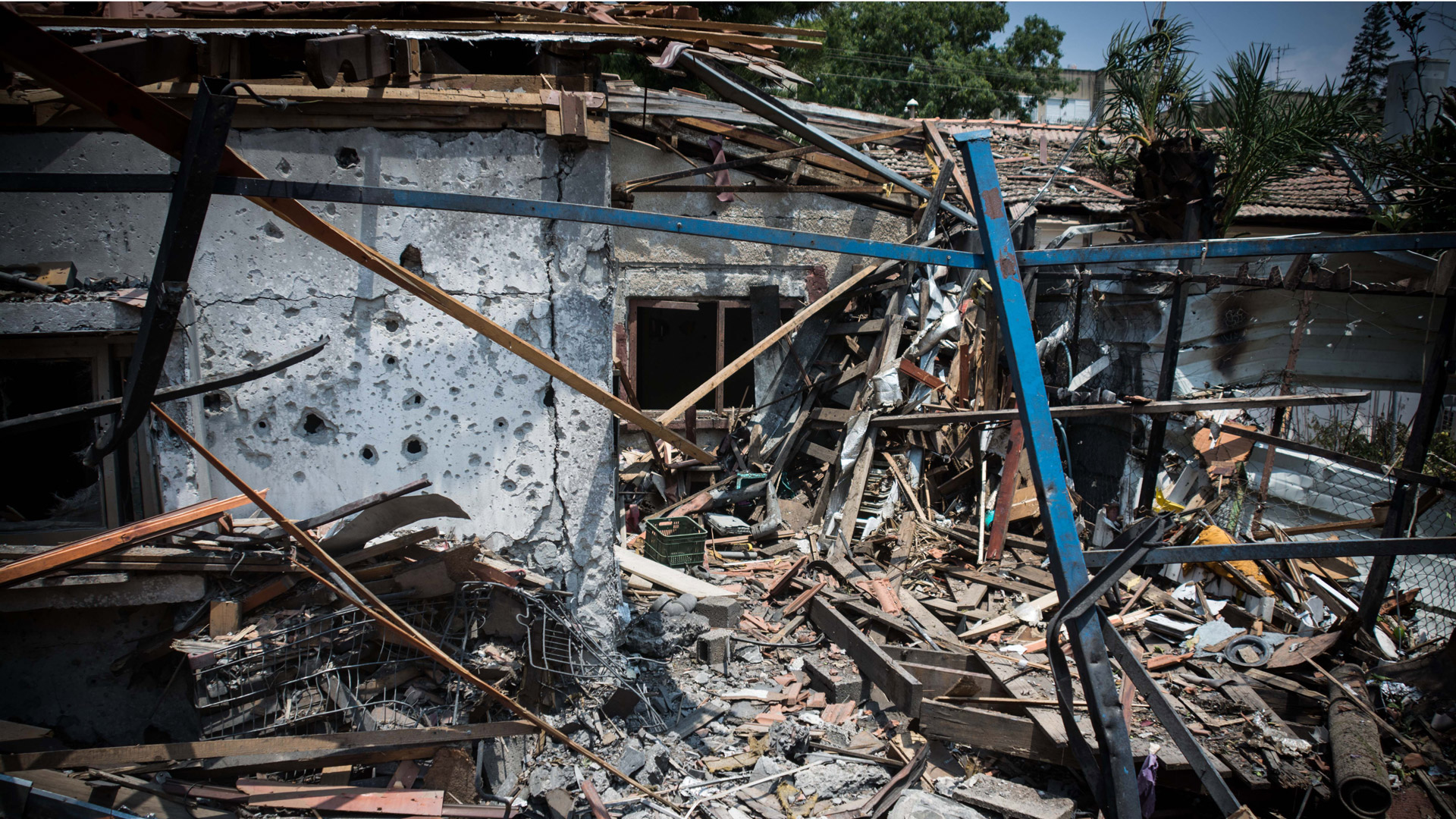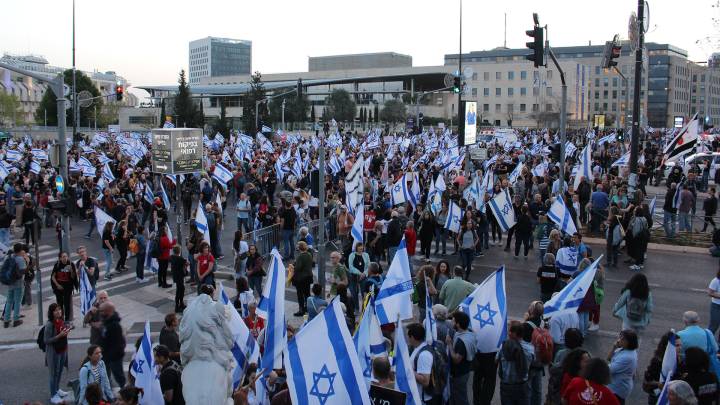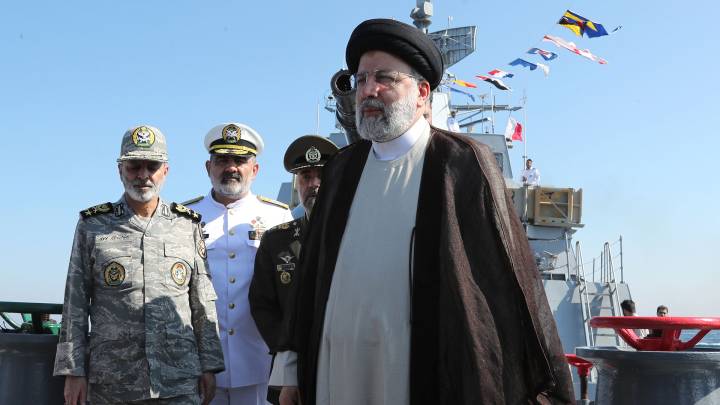Recent history is littered with accidental wars. If war breaks out between Israel and Hezbollah, Iran could join the fray, with catastrophic consequences.
In the world of Iran-Israel relations, we have tense days ahead of us. Very tense. Perhaps more tense than the days preceding the 2015 nuclear deal between Iran and the P5+1.
Despite the 2015 Iran nuclear deal, which according to numerous former top-ranking Israeli military and security officials has been good for the security of Israel, an emerging scenario means we now face another conflict between Iran and Israel. During the period preceding the 2015 agreement, according to various reports, some of Israel’s top military and intelligence officials, as well as Shimon Peres, stood firm against Netanyahu’s plans to attack Iran.
In my opinion, their successors, some of whom may have also been against attacking Iran’s nuclear programme, could change their position and support a new attack. This would entail a massive and prolonged Israeli air force and ground-to-ground missile campaign against Iran’s military, industrial and economic base.
The scenario under which this could happen could very well be a direct consequence of the next Hezbollah-Israel war. Compared to the 2006 war between them, Israel thinks Hezbollah now has 17 times as many missiles – an estimated 120,000 – acquired mostly with financial, and in some cases technical, support from Iran.
Hezbollah chief Hassan Nasrallah is proud of his weapons and the financial support of the Iranian regime. In a speech in June 2016, he stated: “We are open about the fact that Hezbollah’s budget, its income, its expenses, everything it eats and drinks, its weapons and rockets, come from the Islamic Republic of Iran.” You can watch the video of his speech with subtitles here.
You may say this is nothing new. Hezbollah also received much of its funding from Iran during the 2006 war, and Israel did not attack Iran. So what has changed?
Let’s put things into perspective. In 2006, Hezbollah fired 4,000 missiles and rockets at Israel during the 34-day war. This time it has the potential to fire at least 25 times that number. Let’s say Hezbollah fires 100,000 missiles and Israel intercepts half of them. That means 50,000 missiles and rockets falling on Israeli cities.
Such an attack carries the danger of a major radioactive leak, which could be very harmful to the civilian population around it This means the number of Israeli civilian casualties could run to the thousands, and the damage caused to cities and the country’s industrial base would be considered “unbearable”, in the words of former IDF operations chief General Giora Eiland. Major parts of Tel Aviv and Israel’s industrial heartland would be left in ruins.
In my opinion, it’s unlikely that war between Iran and Israel will break out at the beginning of the next war between Hezbollah and Israel. However, an unprecedented number of casualties among Israeli civilians due to Hezbollah missile attacks would make it a realistic possibility. Israeli leadership – even a centrist government headed by someone much more to the left than Benjamin Netanyahu – could decide that bombing Lebanon’s infrastructure gives little cause for concern to Ali Khamenei, Iran’s Supreme Leader.
So far, Khamenei has been quite happy to pay for Lebanese and Palestinians to attack Israel, while maintaining a safe distance from the ruins of war. As retired general Ephraim Sneh stated at the 2017 Herzliya Conference: “Iran does not give a damn if Lebanon’s infrastructure is destroyed.”
There is also the threat by Nasrallah to kill a large number of Israelis in the next war through either poison gas or a massive radioactive leak. In a speech in February 2016, Nasrallah warned that, should the conflict between Israel and Hezbollah escalate in the next war, “A few missiles on a few ammonium plants equals the same amount of death as an atomic bomb.”
The ammonium plant in question is in the city of Haifa. Since Nasrallah spoke, there have been increasing calls for the tank to be emptied. A year later, Nasrallah threatened to attack Israel’s reported nuclear reactor in the city of Dimona with its missiles. Such an attack carries the danger of a major radioactive leak, which could be very harmful to the civilian population around it.
There is another reason the people who were against attacking Iran’s nuclear programme might support retaliation against Iran in the event of a massive war with Hezbollah. Before the nuclear deal, an attack was opposed by the top echelon of the Israeli security establishment, in part because there was an alternative way of dealing with the nuclear danger from Iran: the P5+1 nuclear talks. This time, no such mechanism exists. Furthermore, unlike the last round of fighting in 2006, this time the Iranian regime has added 20,000 more proxy troops in Syria through various Shia militia. This has added to Israel’s sense of long-term threat from Iran.
For Iranian-Israelis like myself, war between Iran and Israel is a nightmare scenario No one wants to start a new full-blown Hezbollah-Israel war. In 2006, approximately 1,200 Lebanese, mostly civilians, and 160 Israelis, most of them soldiers, were killed. A million people in Lebanon were displaced, as were up to 500,000 in Israel. In fact, Nasrallah has said that he doesn’t want to deliberately start another massive war. Nor does Israel.
But modern Middle East history is littered with unwanted wars sparked by an unexpected event or a small clash that escalated. There are plenty of recent examples: Israel and Hamas started 2015 with neither predicting or wanting war. The 2006 war between Israel and Hezbollah was unforeseen and unexpected. Neither the Egyptians nor the Israelis were planning an attack in 1967, until the Soviets played a disinformation game which ultimately pushed both sides towards war.
The list goes on. And unfortunately history could repeat itself again.
For Iranian-Israelis like myself, war between Iran and Israel is a nightmare scenario. The same is true for the overwhelming majority of Israelis of Iranian origin. We take every opportunity available to improve relations between the two people. We want peace between the two countries. However, if a massive missile attack by Hezbollah leaves thousands of Israelis dead, there will be little we can say or do, especially since we could also be victims of those missiles.
Let’s hope such a scenario never materialises. The last thing the people of Iran, Israel and Lebanon need is another devastating war.
Meir Javedanfar was born in Tehran and teaches Iranian politics at the Interdisciplinary Center (IDC) in Herzliya, Israel. He tweets as @Meirja.




